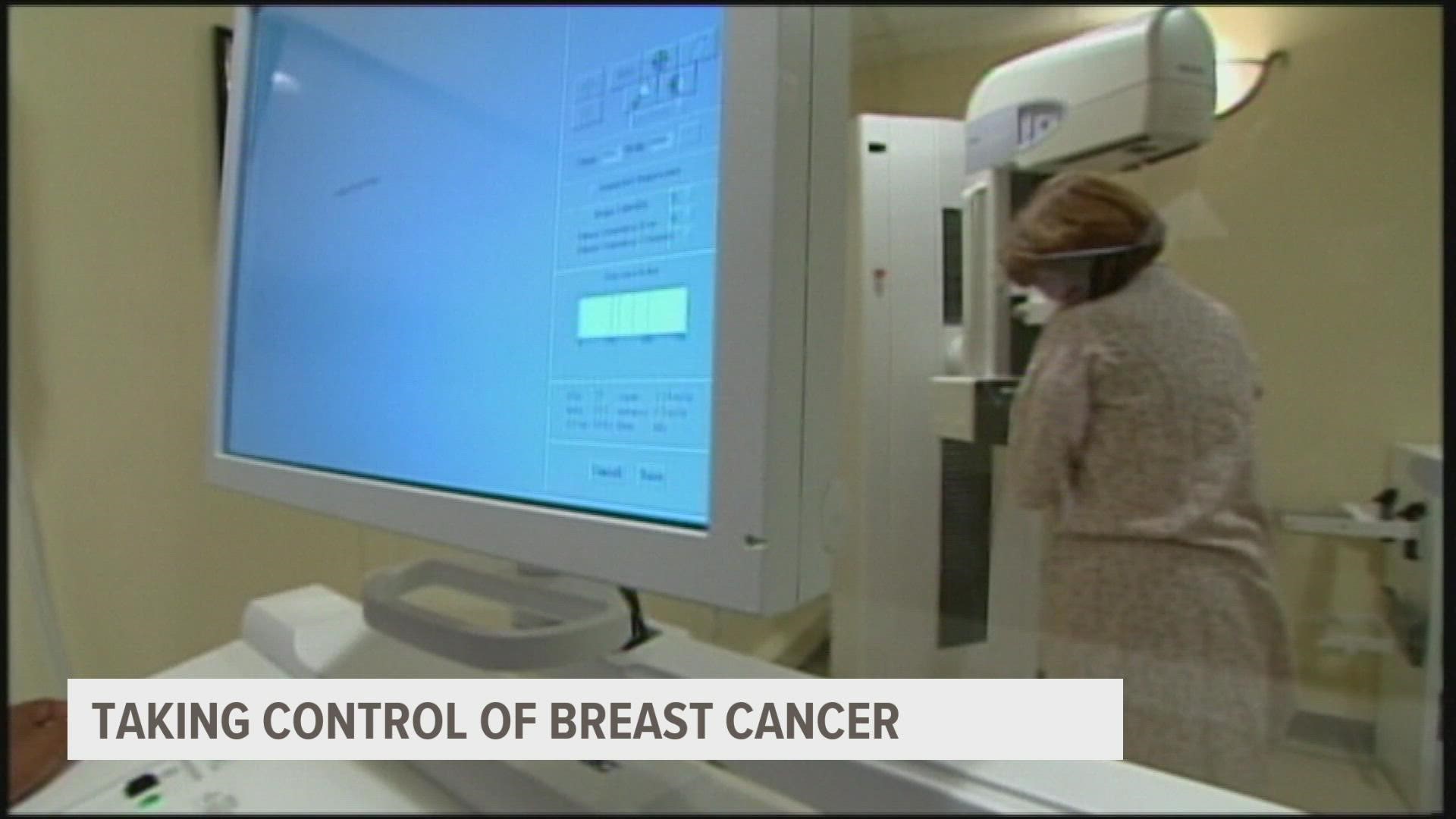ANKENY, Iowa — Early in the pandemic, doctors reported seeing mammograms drop off. More and more women were putting off this lifesaving screening, making their cancer more advanced when it was eventually detected.
With vaccines and masking, screenings have picked up.
But there is still some confusion over what age women should get their first mammogram.
"The confusing thing for the public is that different societies have different recommendations for starting date," said Dr. Amy Hughes with UnityPoint Health's John Stoddard Cancer Center. "[The] American Cancer Society recommends starting at age 45. They say discuss with your doctor starting 40 to 45. So there is some confusion for the general public well ... 'Is it 40 is it 45?'"
"I'm biased in this field. I see too many young women. So all of my colleagues would recommend starting at 40 and moving forward annually."
And that younger age guideline was spot-on for Carissa Meredith of Ankeny.
At age 43, she was diagnosed with breast cancer after a follow-up to her routine mammogram in July. She is young, healthy, and had no family history.
Her diagnosis came as a shock. She says
"When I heard that I was just ... grateful that I caught it early. But you're scared, you're sad, upset. I think it was just like 'Why is this happening?'" Meredith said. "But you look at the statistics, one in eight women getting breast cancer. So It's important that women get those mammograms."
Meredith urges women who are putting off critical health screenings because of the pandemic to go to the doctor. She caught her cancer early, but it is aggressive. She will need four rounds of chemo, radiation, and hormonal therapy.
After that, she believes she will be cancer-free.
Hughes told Local 5 women and men alike should take stock of their overall health and take action now. This includes cleaning up your diet and staying active.
"I don't expect people to become vegetarian, but the more you can avoid processed, refined foods, fast foods, sodas, can be very helpful," Hughes said. "And of course, staying active too. I think that's the other side of this. It's not just genetics, it's not just what we're born with. This is more a matter of what do we have in our society that can impact our risk too"

